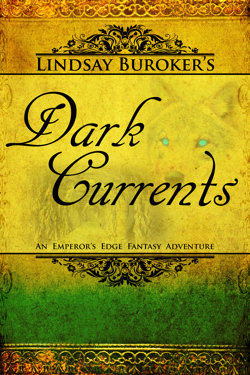 I’ve hosted quite a few interviews with indie authors over the last few months, and, in a narcissistic fit, I thought I’d “interview” myself today. The questions have either come through the contact form on this site or via blog comments and are paraphrased (though you’re welcome to claim one in the comments if it sounds familiar!).
I’ve hosted quite a few interviews with indie authors over the last few months, and, in a narcissistic fit, I thought I’d “interview” myself today. The questions have either come through the contact form on this site or via blog comments and are paraphrased (though you’re welcome to claim one in the comments if it sounds familiar!).
The impetus for this post was me reaching one of the goals I had when I started e-publishing. Back in December, when I published my first ebook, there were quite a few blog posts and forum lists sharing names of indie authors who had made it into the “1,000 ebook sales a month” club. Through some unspoken agreement, this number seemed to indicate success as an indie, so I figured it was a good goal.
Thanks to the awesome folks who have downloaded my ebooks (and told others to try my work!), I hit that mark in May, and then did even better in June, after releasing my third full-length novel, Dark Currents.
Now, this is a modest success compared to what some independent authors are seeing (I just finished reading John Locke’s How I Sold 1 Million eBooks in 5 Months!), and it doesn’t represent great wealth (less than 800 of those ebooks sold for more than $0.99), but, hey, a goal’s a goal, and I know many folks finding this blog are just starting out, so I’ll share some of what I’ve learned here.
I hope something’s of interest!
What’s the secret to selling ebooks?
If there are any secrets to becoming an overnight success, I sure don’t know them. Most indies I’ve come across who are hugely successful today started slowly, having unimpressive sales for the first 6-12 months, and then reached a tipping point where they were selling enough to get into bestseller lists and start getting recommended all over Amazon. We all dream of that day!
I’ll try to give a couple of useful tips though:
Get more books out there.
This means there are more doorways into your world. Don’t get hung up on not being able to write that fast. Lots of people are publishing novellas and short stories as ebooks. If you’re someone who had his or her eye on the traditional route, you’ve probably made some short story sales to magazines and anthologies over the years. Check and see if the rights have reverted back to you yet. You may very well have a number of stories that could be turned into ebooks right now.
Another perk of having more books out there is that there are more opportunities for sales from “repeat customers” (AKA those totally awesome readers who enjoyed your first book and want to grab the rest).
Market smart, not hard.
Yeah, you can sell books by “tweeting” 50 links to your books a day, having thousands of posts on e-reader forums, and spamming the Kindle Facebook page, but these are activities that don’t have lasting effects (forum posts, tweets, etc. get buried with time, so you have to keep repeating your efforts). They’re also tactics that everyone else is doing (nobody ever made it big doing what everyone else was doing). Ideally, you want to do something once and reap the rewards again and again. Read my recent post on high vs. low level book promotion techniques for ideas.
One example would be giving away a free ebook. As I’ve mentioned numerous times, I did a short story with an excerpt to Emperor’s Edge at the end (the short has the same heroes as the novel), and that was the first small break for me.
I also like advertising on Goodreads because it doesn’t cost me much, but it’s resulted in book sales and, more, it’s resulted in lots of people adding my books to their “shelves” over there.
Though it has less obvious results, I like guest blogging too (though I’m finding myself with less time for it these days). Every time you leave a post (with a link back to your site) on someone’s blog, it’s a little vote for your site in the eyes of the search engines. If you maintain a blog of your own, this can grow to a huge source of traffic over time, and some of those readers might just become buyers of your books.
What are your thoughts on pricing ebooks at $0.99?
Well, since I’m doing it, I can’t very well be against it! I think it’s a fair price for short fiction, which explains most of my 99-cent price tags, and I also think it’s a good way to draw readers into a series, which is why I lowered Emperor’s Edge (a 105,000-word novel) to 99 cents in May. Though the book didn’t become an on overnight bestseller (sales roughly doubled), it resulted in more sales across the board for my work. As I mentioned, that’s the month I first broke 1,000 in sales.
I don’t think you have to price ebooks at $0.99 to sell them (EE was $2.99 up until that point, and I hit the 1,000-total-sales mark for that book in April), but I think it can be effective as part of a marketing strategy.
Aren’t you devaluing yourself and your work by pricing a novel at $0.99? At $0.35 earnings per sale you’ll never even make minimum wage….
I always scratch my head when people bring hourly wages into this. We’re entrepreneurs, guys, not hourly or salaried workers, and we’re creating intellectual property that can pay us in perpetuity — we’re not trading an hour’s work for an hour’s pay.
Ultimately that means you’ll probably make squat in the beginning (you know the saying about most businesses taking five years to turn a profit…if they do at all), but there’s no ceiling on what you can make down the road.
There are people out there selling 10,000+ copies a month of their $0.99 novel.
There are others (the more likely road to success) selling a mix of novels and novellas and short story collections at different price points with some titles doing extremely well and others doing less well but still making money. They may not be blockbuster sellers, but these authors are able to make a living from their body of work (I’m not there yet, but I can see the potential, and how cool would it be to make a living as a fantasy author? Yeah, pretty cool!).
Ebooks, remember, need never go out of print, so when you’re writing a novel it’s not about what you earn in the first month or year but what it can earn over its entire lifetime.
Why did you choose to e-publish instead of seeking an agent and a traditional publishing house?
I’ve received this question a number of times, and I have to admit it’s flattering (since it often comes with a “hey, I think your stuff is good enough to be published normally” kind of tag). There are a few reasons:
1. My lack of patience and disinterest in busy work. I didn’t want to deal with the rigmarole of writing query letters, writing a synopsis, researching agents, emailing agents, waiting weeks and months for replies to query letters, etc, etc. etc. Seriously, you could write an entire new novel in that time. And I don’t write in “hot” genres or even easily defined ones, so I didn’t expect a lot of agents to be shoving each other aside for a chance to represent me. Even if you get an agent, that’s no guarantee your book will appeal to a publisher.
2. Independence. I haven’t worked for anybody else since I got out of the army ten years ago, and nothing about being in the army convinced me I enjoy answering to higher powers.
3. Money. This wasn’t one of my original reasons, but it’s certainly become a factor. As it stands right now, you’re a heck of a lot more likely to be able to make a living as an indie ebook author than you are as a traditionally published novelist who shares a big chunk of the earnings with middlemen. Also, you can get your work out there into the marketplace much sooner, so it starts earning you money sooner.
I should say, too, that I didn’t see the choice to go indie as an either/or option that would last for all eternity. I’m starting out this way, but maybe I’ll look for an agent and a publishing deal down the road if the stars align correctly. I believe without a doubt that once you’ve made a name for yourself and proven you can sell, you’ll find it a lot easier to find representation and a publishing deal.
What’s the hardest part of being an independent author?
I imagine every author would have a different response to this, since it’ll depend on what your strengths and weaknesses are and what you enjoy doing.
There’s nothing I hate doing, but I’ve experienced the most grief over cover art. I don’t know anything about design, and I never know what to ask for with this stuff. I also (and, yes, I’m saying this in a whiny pouting voice) think high fantasy has got to be one of the hardest genres to do cover art for. Thrillers can get away with some stock picture of a knife with blood spattered across it, and, bam, you know exactly what kind of book it is at first glance.
Okay, there’s my least favorite thing about being an indie. Not a big deal in the grand scheme of things at least. 🙂
What’s the best part of being an independent author?
Okay, nobody has asked me this question, I admit it. But I thought it’d be a fun one to finish up on.
I’ll share a couple of “best parts.”
Calling the shots.
Hey, if your first cover sucks, you get to try again. Traditionally published authors are stuck with covers they hate all the time, and they still have to carry that eyesore around to sign at conventions.
You get to play with price and experiment with blurbs and marketing strategies to your heart’s content too. You also have final say on whether the story gets published as is. I do sometimes miss having the expert input of an actual publishing house editor, but I’m not sure I’m the kind of person who would always appreciate what might be mandatory “suggestions.”
Seeing sales as they happen.
This can be a blessing and a curse, but Amazon and B&N (through PubIt) update sales stats as they happen. Sure, you can get obsessed and spend too much time checking them, but the real benefit here is that you can see which of your promotional tactics are working.
You also know exactly where you stand at any given time. I’ve had traditionally published authors ask me what a sales ranking of such-and-such correlates to in book sales at Amazon. These guys have to guess how well they’re doing because they otherwise won’t know until royalty checks come in.
I know I’d find it harder to stay motivated about marketing if I only got a royalty check (and any clue as to how well my efforts are paying off) twice a year or once a quarter or whatever it is. Ouch.
All right, that’s probably enough for my first “interview” with myself. If you have questions, let me know in the comments. Thanks for reading!

 Over the next few days, I’m going to attempt to answer some of the questions authors ask in regards to book sales (specifically selling more of their books) at Amazon.
Over the next few days, I’m going to attempt to answer some of the questions authors ask in regards to book sales (specifically selling more of their books) at Amazon.
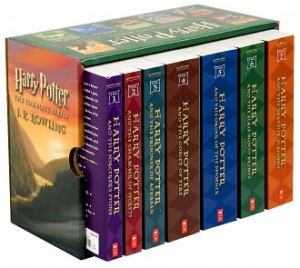
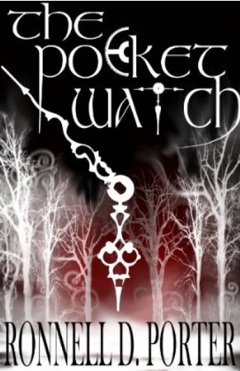
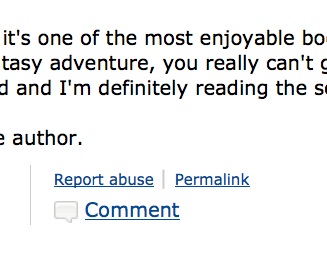 A couple of weeks ago, we wondered, “
A couple of weeks ago, we wondered, “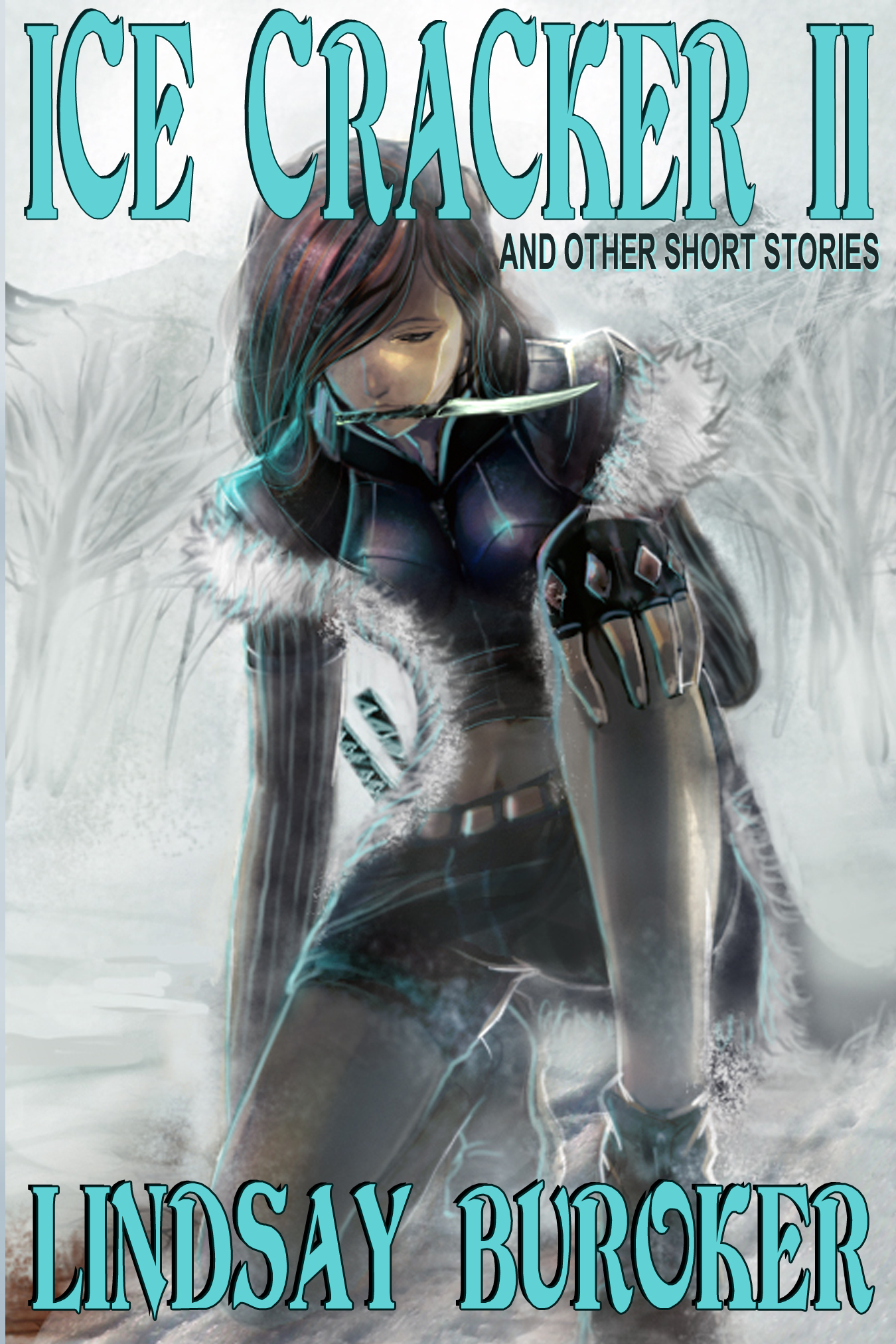
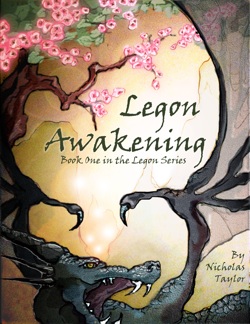 We’ve chatted about pricing the first ebook in a series at 99 cents or even giving it away for free as a way to get readers to check out your work (and, we hope, go on to buy the rest of the series!). If you’ve been wondering if this is actually working today, then you’ll want to check out this interview with indie fantasy author,
We’ve chatted about pricing the first ebook in a series at 99 cents or even giving it away for free as a way to get readers to check out your work (and, we hope, go on to buy the rest of the series!). If you’ve been wondering if this is actually working today, then you’ll want to check out this interview with indie fantasy author, 



5 Tips for Bringing More Readers to Your Blog
Whether you’re an author, hoping to attract folks who might buy your books, or you’re just trying to get more people to read your posts, it’s satisfying to see one’s traffic increase from month to month. It’s nice, too, when people leave comments and you get to have conversations with someone other than yourself. (Not that self-conversing isn’t fun, but, ya know.)
Since it’s hard to impart much wisdom in 140 characters or less on Twitter, I figured a blog post was in order. So, without further rambling, I give you…
5 Tips for Bringing More Readers to Your Blog
Apply basic search engine optimization to your posts
You don’t have to become an SEO expert, but using keywords in the title and building links to your site can go a long ways in increasing the number of visitors you receive from Yahoo, Google, etc.
Thanks to Twitter, I see quite a few blog post titles, and many of them are useless insofar as attracting search engine visitors (honestly, they’re pretty useless for attracting clicks via Twitter too). This is because they don’t tell me what the post is about. “Coming soon…” or “Some Interesting Updates” doesn’t inspire me to click unless I know you already (maybe not even then!).
If you do nothing else, help yourself by making sure your post titles make it clear what the entries are about.
Don’t just write about yourself and your books
This one is for my author buddies. If you want to increase your blog readership, posting excerpts and reviews of your books probably isn’t going to do it. Likewise, posts about your life aren’t going to interest many folks unless you have a Dave-Barry-esque knack for making the mundane entertaining. Sure, when you’re a celebrity, you can blog about yourself and nothing but yourself and people will read about it, but we have to get to celebrity status first. How? By writing about things people find informative and/or entertaining.
If you’re an indie science fiction author, for example, you might review popular books in the genre or blog about the latest SF movies or television series. Think about what your target audience might be out there Googling and consider writing some posts that would answer those queries.
(I’m not a good example of this, by the way; I’m more interested in writing about e-publishing and book promotion than my chosen novel genre. W. Brondt Kamffer is an indie fantasy author who does a nice job blogging for his target audience.)
**I don’t want to give you the idea that you should never write about yourself or your books (sometimes when it’s all interviews and reviews your voice gets lost and it feels like we could be reading newspaper articles where it doesn’t matter who the journalist is), just that it’s wise to find a balance. A little personal information here and a little interesting-to-your-target-audience-stuff there.
Leave comments on other people’s blogs
I’m not as good at doing this as some folks are — it’s a time consuming promotion method, and I find myself short of time lately! — but this can be a good way to bring in new visitors, especially when you’re just starting out and don’t get much search engine traffic yet.
If you leave useful comments on blogs where your target audience hangs out, people might be interested enough to click on your name and follow it to your site. The owner of the blog, too, might reciprocate and come comment on your site (this is most likely when you’re visiting other new-ish blogs — understandably, bloggers who get 25-50+ comments per post are less likely to have time for this).
Sneaky tip:
If you can be an early commenter on a new post on a popular blog, your words will be seen by a lot of people and you’ll be more likely to get visitors. I had that happen on a JA Konrath post once (he often gets 100+ comments). I only check his blog a couple of times a month, so it was just chance that I got a comment in early, but I included a link to my site at the bottom and quite a few people surfed over to check out my blog (note: not all bloggers will approve comments with self-promotional links in them, so see what the trend is before assuming you can do this).
Use Twitter, Facebook, etc. to bring visitors to your blog
I don’t think the social media sites are particularly good for selling books, so you won’t often see me tweet sales links (if anything, I’ll usually send folks to an excerpt on my site or to Smashwords to download a freebie). I do, however, announce my new blog posts on Twitter, and this brings quite a bit of traffic, especially when something catches a few eyes and gets “retweeted.”
I’m not big into Facebook, but I do have a few blog followers via their “Networked Blogs” feature, so you may want to look into signing up for that (among other things, it automatically announces your blog posts on your Facebook page).
As you might guess, you’ll get more mileage out of the social media sites if you’re active on there and work to get some followers. Unless you have lots of free time, consider focusing on one to build up network rather than trying to spread yourself (possibly ineffectually) across them all.
Try to turn one-off visitors into regulars
Okay, last tip. While it’s great to drive lots of new visitors to your site, it’s even better to convert those one-time visitors into regular readers.
One way is to encourage folks to sign up for your RSS feed. (This is on my to-do list as my current link is not prominently displayed.) If visitors track a lot of blogs, they probably use Google Reader or another service to check all the new headlines at once. If they add yours, it’ll be easy for them to see when you’ve posted something interesting.
Another good thing to add, especially if you’re an author and you’re hoping to get readers to buy your books, is a newsletter. This lets you send notes straight to people’s inbox where they’re much more likely to notice you than if your blog is 1 of 200 hanging out in their feed reader. You can give people the option of signing up to receive each of your new blog posts in their inbox, or you can have them sign up for a mailing list where you can send them personalized messages now and then.
All right, those are my five tips. Do you have any you’d like to suggest?